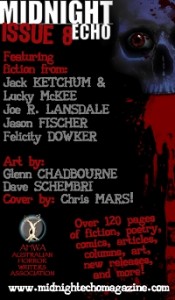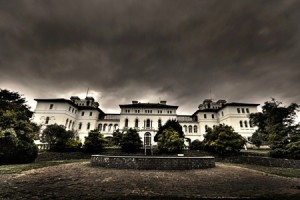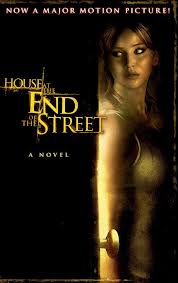Directed and co-written by Drew Goddard
Co-written and produced by Joss Whedon
Starring Kristen Connolly, Chris Hemsworth, Anna Hutchison, Fran Kanz, Jesse Williams
Here’s the integral thing you need to know about me in the context of this review: I’m not part of the cult of Joss Whedon, because I’m largely unfamiliar with Joss Whedon.
I can say “I like his work”, but when I say that, what I’m actually saying is “I like the episodes of Buffy I’ve seen” (because I haven’t seen all of them – and while I do like Buffy, I wouldn’t say I’m a massive fan of the series – I enjoy it, but I’m not passionate about it). And that’s it. I know he also did Firefly and Dollhouse, but I haven’t seen either of those, and in fact I don’t even know what they’re about. I haven’t even seen Angel. I’m sure he’s done other stuff that I don’t even know exists, which is essentially my point – I’m not an avid Joss Whedon fan; I don’t even have a solid awareness of his body of work. Yes, I am a Bad Geek, but the flipside of that is that I went into Cabin in the Woods without preconceived expectations or a pre-existing unshakeable belief that it would be good because Joss Whedon is good.
I’m pointing this out because one of the criticisms I’ve seen of positive responses to Cabin in the Woods is that people are just enthusing about it because Joss Whedon! – which, in my case, is obviously not true.
Now, on to the enthusing. BEWARE: SPOILERS AHEAD. Seriously, spoilery spoilers of extreme spoilerdom. If you haven’t seen the movie, don’t read on, it will totally ruin the experience for you. Don’t read any other reviews, either. Just go see the movie.
Cabin in the Woods is ostensibly the story of five college students who drive out to a remote, uh, cabin in the woods, to drink and smoke pot and screw, following which, gory bad things happen to them. The end.
Not.
There’s overt foreshadowing (actually, “foreshadowing” isn’t an accurate descriptor, there’s no subtlety to it, it’s just shoved in the viewer’s face because it’s not a secret, we’re meant to think we know exactly where things are at here) that all is not as it seems from the very start of the film, with technicians in an unnamed facility watching the five teens through surveillance equipment and gearing up for some nasty process to take place that they have obviously overseen many times before. We assume it involves the five’s messy demise. We’re also shown a type of forcefield around the cabin site that a bird smashes into and is electrocuted by. Got it. Can’t get in or out unless something/someone wants you to.
So even now, we think we know what’s going on, right? Yes, the five hapless teens – archetypes from horror movies gone by, including the whore, the virgin, and the jock – are in a secluded cabin and horrific things will happen to them, and as an added twist, the technicians will watch, presumably for jollies or to produce some sort of warped reality show or…something. The end. Right? Nooooooooo.
Once in the cabin, our five become overstated parodies of the archetypes they represent, and there’s all the usual male-gaze and women taking off their tops and dirty dancing and tongue-kissing stuffed wolf heads (what?) and…all that stuff. In Cabin in the Woods, though, this is intended to be ironic. Y’know, the male-gaze here isn’t really male-gaze but a commentary on the male gaze in horror films, and also the product of deliberate manipulation of the five occupants into archetypal behaviours by the technicians overseeing the cabin. And I think, largely, this irony is successful. I still don’t enjoy sitting through pervy scenes of tits and bimbos. It’s still irritating and uncomfortable. But that’s kind of the point. It’s uncomfortable but Cabin in the Woods knows it’s uncomfortable – points out that it’s uncomfortable, and then laughs at itself. And us. And we let it.
And there’s a lot of laughter in Cabin. Scares, yes. Blood, yes. Authentic laughs? Yes. That’s a hard combo to pull off – comedy in horror rarely works well. It works here. And even that is a kind of ironic parody of itself, because the comedy in Cabin is silly and obvious and cliched. But it works because it’s meant to be silly and obvious and cliched and that’s why it’s funny. And we know it’s ironic and that our laughter is ironic and how silly and pretentious that is, and how silly and pretentious we are for buying into the irony, dahhhhhling, and that’s funny too. Aren’t we all so special and hip and bored with life. Ha ha ha. We’re laughing with the movie at the movie which is laughing with us at us laughing with it at it and who’s the idiot here, really?
So, the five go into the basement (which, of course, you should never do), and find weird and wonderful things, and touch the weird and wonderful things (another thing you shouldn’t do), and read out a Latin incantation (definitely never do that), and awaken a zombie redneck torture family who attack, maim, and kill them while the technicians watch and even manipulate to ensure maximum carnage. And eventually everyone except the “virgin” is apparently dead, the watching technicians are rejoicing, and the movie should end.
But that’s where it actually really starts.
Because someone who should’ve been dead isn’t, the order of things is destroyed, and the zombie redneck torture family turn out to be just one of an array of vast subterranean horrors housed beneath the cabin and brought up by elevator based on which object the five choose and activate in the basement.
Things go nuts. The scene where the elevators are all opened and all the creatures fly out and drown everything in all the blood is fucking awesome. The cameo by Sigourney Weaver is sweet. The old Gods thing is cool. The global perspective and the variations in horror between cultures is fun. It’s all massive rapid-fire sensory overload at this point, as the movie inverts itself over and over again, with so many homages and little treasures for fans to spot and enjoy, and it’s delicious.
Sure, some of it’s a bit weak, when you reason through it in hindsight. Like, for such a sophisticated and well-established facility, they sure don’t have any strategies in place to deal with things going wrong – one brain-challenged and easily overthrown guard to deal with escapees? No one thinks to go straight to the elevator the two surviving kids have entered to escape the cabin, despite it being easy to track it as it can only be the elevator the zombie redneck torture family entered the cabin from? Why are the elevators set up to bring all the horrors up from underground and give them free access directly into the facility, anyway? Isn’t there an easier way for the old Gods to get the blood sacrifices they require – like, just shoot the archetypal victims in the head, for instance? And even the archetypes are sort of confused and conflicted – the virgin isn’t a virgin, for example. I could go on. There are silly aspects. But, y’know…
I just didn’t care.
It was that good. I’ll pass them off as deliberate silliness, or more irony/commentary/enigma/critique, or hell, just genuine errors and oversights – whatever. I don’t care. They didn’t matter, the film worked, it was fresh, it was different, it had tension, laughs, surprises, a million small gore-geeky touches (like a device that resembled Lemarchand’s configuration, held by a Cenobite-esque creature called Fornicus, FTW!), it was smart and scathing of everything including itself, the climax just kept on climaxing, there were brilliant monsters and BIG SCENES OF EPIC BLOOD AND HORROR, and I fucking loved it.
Brilliant. Best horror movie I’ve seen in a long time. So much more than just a horror movie, actually. It raised questions – was the whole thing a critique? A parody? A joke? A puzzle? Or a serious…something? What does it mean if I liked the movie? What would it have meant if I didn’t? The actors were all flawless in their roles (at face value, you’d think that would be easy to achieve in most roles in this movie, but I don’t believe that for a moment because nothing is what it seems here), the effects were fabulous, the aesthetic was gorgeously perfect, and I came out of the cinema reeling with bliss and raving with praise.
If I had a star system to rate movies,Cabin in the Woods would score five out of five.
Maybe I’ll have to consider joining that Whedon cult, after all.




